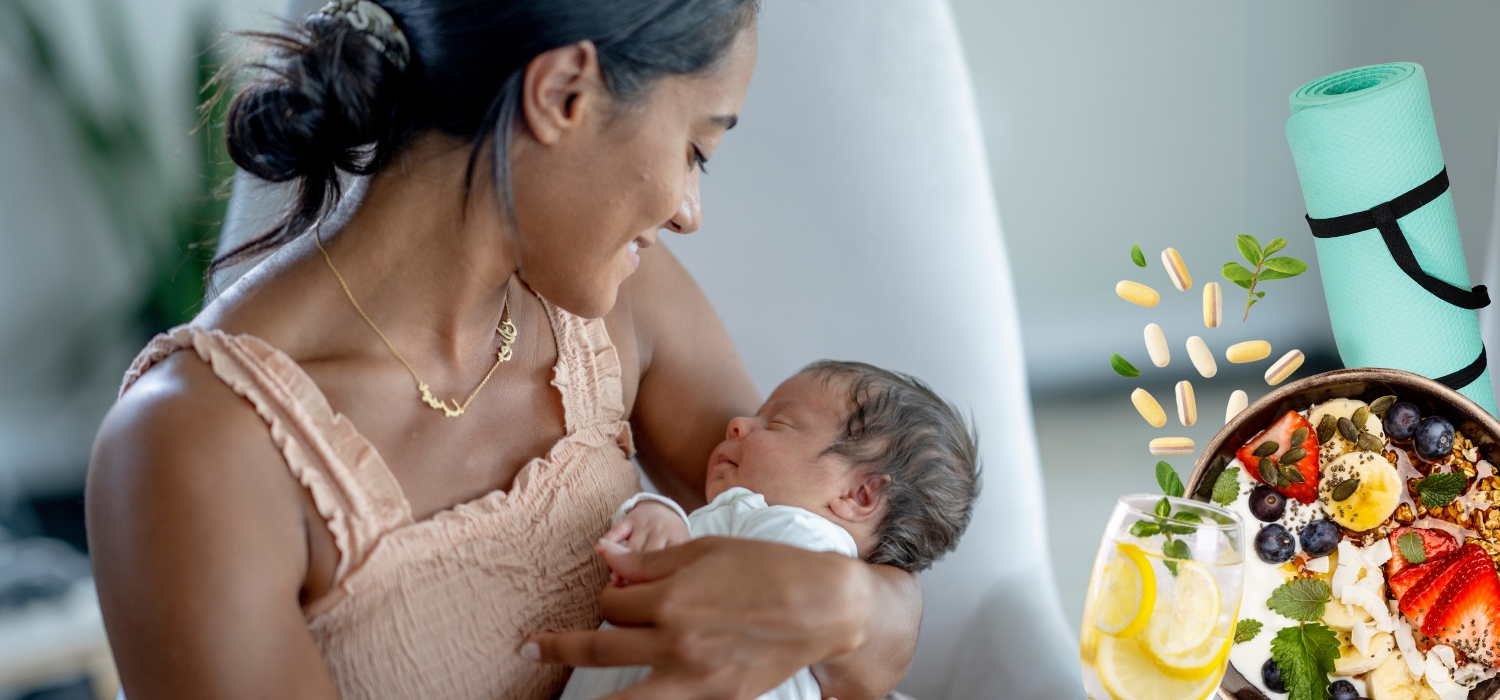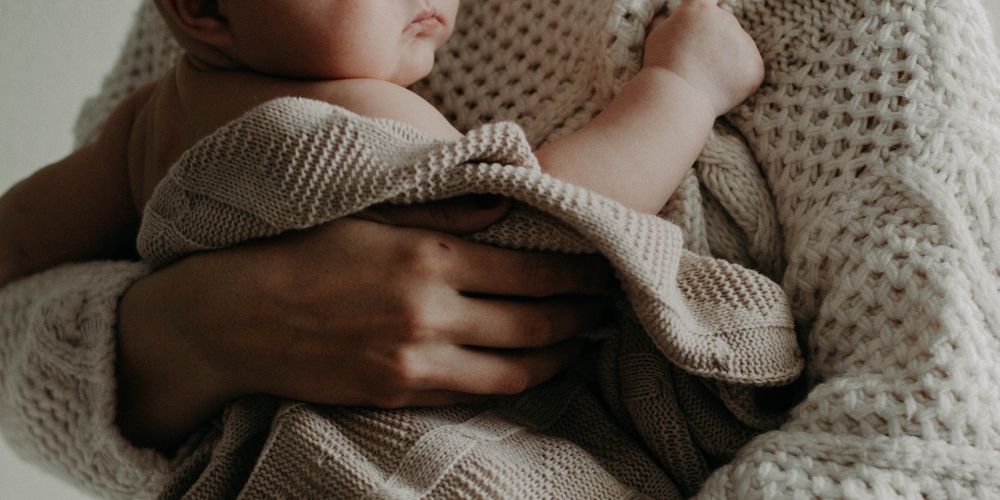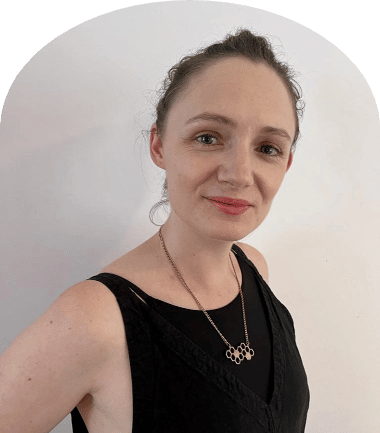
Parenting
Postnatal depletion: Two kids in – and 7 years on – I’m only just getting a handle – here are my non-negotiables
Jessie Day, Senior Editor | 3 Jul 2025
It’s easy to think “postnatal” means right after the baby is born. But for so many of us – me included – postnatal depletion doesn’t just show up in those hazy first weeks. It creeps in slowly. It builds, subtly. And it can last for years.
In my case, make that seven years. I’m only just getting real about it now, in fact, despite having read the (amazing) books, and written about it endlessly.
My kids are now seven and four. I’ve breastfed, combi-fed, co-slept, night-waked, battled whole-family sickness bugs on zero sleep, earned an income, stayed up far too late trying to address it all, watched my period get steadily worse month-by month (that’s 59 cycles, according to my Natural Cycles app, of heavier-than-the last bleeds and erratic symptoms) and cried after a recent girls’ weekend away, wondering why I couldn’t “bounce back” when I was doing everything right. I work in wellness. I take my supplements. I eat well. To the outside world, I’m a full-of-fun, always-on, busy but happy mum – sure, a little tired-looking, but that’s natural.
But honestly I’ve been struggling. And it turns out, I’m not alone.
What is postnatal depletion?
Coined by Dr Oscar Serrallach, postnatal depletion is a term used to describe the long-term physical, emotional, and mental depletion that can occur after giving birth. And it’s not limited to the fourth trimester. It can last months or years after the baby arrives.
Dr Serrallach’s book, The Postnatal Depletion Cure, is essential reading. Truly, to articulate how this condition manifests and feels, order and read this book. It’s therapy in itself – for me, anyway.
He defines postnatal depletion as a “broad and long-lasting condition characterized by extreme fatigue, hormonal imbalances, loss of libido, emotional instability, and a sense of not feeling like oneself.”
Yes to all of the above? Keep reading.
How long does postnatal depletion last?
There isn’t a clear-cut answer. According to Serrallach and other experts like Lily Nichols RDN CDE (I can’t recommend Lily’s work, and evidence-based real food approach enough – keep reading for my favourite recipes from her archives), it can last for seven years (hello! Concerningly, that’s me) or more. Some women never fully recover if they don’t have support and space to heal.
And here’s the thing: it’s not just about iron and sleep. We’re talking about deep nutritional deficiencies, adrenal fatigue, disrupted endocrine function, and a loss of bodily autonomy that, left unchecked, can spiral into chronic health issues.
Is postnatal depletion real?
Yes. Read this, if you’re in danger of any gaslighting.
But frustratingly, institutions who could truly help – like the NHS, WHO and CDC – don’t officially recognise postnatal depletion. It’s largely absent from public health resources. That leaves a huge gap, especially given that we now understand matrescence – the physical, hormonal, and emotional transformation into motherhood – as a significant life shift.
We’re finally seeing progress around menopause and perimenopause. But when it comes to the years after giving birth, too often the conversation stops at “you should get back into yoga” or “take some ashwagandha.” Not helpful (although I can definitely vouch for both).

What are the symptoms of postnatal depletion?
Ok, let’s cut to it – some signs to look out for:
- ongoing exhaustion, even after a full night’s sleep
- brain fog and memory issues
- hair thinning or loss
- low mood, anxiety, and irritability
- unexplained weight gain or weight loss
- loss of libido
- nutrient deficiencies (iron, B12, vitamin D, magnesium, zinc, copper are all common)
- autoimmune flare-ups
- heavy or irregular periods
You might have some of these, all of them, or different ones entirely. The important thing is tuning into what your body is telling you. Full disclosure, I’m working on seven of them. Possibly eight. Which leads me to …
My personal depletion timeline
Looking back, I can pinpoint the signs. I felt the worst not in the newborn haze, but years later. It hit when my youngest was about three. That’s when my periods became debilitating. My skin flared. Anxiety crept in. I was eating well and running around (read, chasing my tail, not intentionally exercising or getting my steps in) but found it harder and harder to lose the lingering postpartum weight.
I had wild hormonal shifts and an ever-present feeling of being off. Like I was just not myself, or in the driving seat of my own body.
I looked at photos of myself from that time and I barely recognised myself. The smile was there, but the glow had gone. I felt husk-like – dry, yet somehow sweating with the weight of it all. I felt depleted in every sense. I was experiencing mood swings I’d never had before, still nearly five years postpartum. Heavy periods had become the norm.
The reflection I saw didn’t feel like me, and I realised I’d been putting myself last on every list for years.
And that was my turning point.
A single yoga session a week and eating more protein wasn’t going to cut it. I needed real help. I needed to put myself fully first, if I wanted my family to get the best from me. And I still have to keep doing that. Consistency is everything.
My current non-negotiables are:
- daily supplements (high-strength, and properly targeted to me)
- movement: strength training has been a game changer, as has barre, and I swim 1-2 times a week – because I love all three
- proper nutrition, with a strong focus on protein and fibre (read, not skipping meals and making up for it with a big, super-nutritious but l a t e dinner)
- sleep: I’m in bed by 11pm at the latest (and working on getting that even earlier – honestly, this is huge progress for me)
some form of fitness class once or twice a week, whether with my lovely local PT or a yoga class - 10K steps a day
- no coffee after 1pm
- 2 litres of water a day, minimum
There’s more I’m stacking in, but this is what’s shifting the needle for me right now. Finally. I can’t believe how little of this I made time for since becoming a mum. I mean, I can, but I can’t.
I also swear by a high-quality B vitamin complex for consistent energy, a multivitamin, vitamin D3 with K2, a probiotic, and omega-3, plus magnesium. I pulse in other supplements – like adaptogens and berberine – but that’s my current repletion baseline
Check out The Postnatal Depletion Cure by Dr Oscar Serrallach for help building yours.

Blood tests for postnatal depletion
These are the ones that help many women dig deeper – work with a qualified practitioner to look into:
- full thyroid panel (TSH, T3, T4, antibodies)
- ferritin and iron saturation
- B12 and folate
- vitamin D (crucial for mood + hormones)
- zinc, copper, selenium, and magnesium
- hormonal panel (especially progesterone and estrogen)
- cortisol (to assess adrenal function)
Don’t DIY this without support. A functional medicine doctor or qualified nutritionist can help you interpret results and spot patterns.
The supplements to know
Please consult a professional before starting any new supplement.
That said, here are the ones that helped me most (alongside a really top-notch multivitamin), linked up with the brand and formula I’m currently taking:
- magnesium glycinate – for sleep, stress, and muscle recovery
- vitamin D with K2 – supports hormones, mood, and immunity
- omega-3s (DHA + EPA) – anti-inflammatory and brain-protective
- B-complex – energy, nervous system, mood
- adaptogenic and micronutrient support from a really good complex, plus ashwagandha to ground and stabilise my cycles
Alongside supplements at the right doses and potency, check out the work of Lily Nichols RDN CDE for nutrition-first support. Her recipes and nutrient guidance are gold – get started with her Real Food Postpartum Recovery Meals: 50+ Recipes & Freezer Tips – perfect for seven hours, days, weeks, months and/or years after giving birth. My favourite is up-top – her super-delicious and nourishing Shepherd’s Pie.
Sleep, stress & the myth of doing it all
Sleep was a game changer. I’m a chronic night owl, but I had to teach myself to wind down earlier. Once I prioritised sleep like I prioritised getting my kids to school on time, things shifted. Hormonal chaos began to calm. My mood stabilised. I stopped waking up feeling like I’d been hit by a bus.
The mental load is real. The 24/7 pinging brain that tells you to get everything out of the car, order uniforms, book clubs, sort out vaccinations, locate and wash the water bottles, shop and prep for potentially 21 meals a week, volunteer for the school fayre and buy birthday presents. That contributes to depletion too.
I now leave some things until tomorrow. I go to bed earlier. I let good enough be enough.
Gentle rebuilding
If you’re ready to start moving again, regular but gentle yoga or stretching can be incredibly healing. This piece on postnatal yoga is a great place to start.
It’s not about getting your “pre-baby body” back. It’s about reconnecting with your body, listening to it, and supporting your nervous system.
Rebuilding with real food
Ultra-processed bars and pink it and shrink it postpartum products do not count as recovery.
Here are some basics that helped me rebuild:
- protein at every meal: eggs, beans, fish, meat and poultry, tofu, yogurt, cottage cheese
- healthy fats: nuts, seeds, olive oil, oily fish
- mineral-rich foods: bone broth, leafy greens, seaweed, liver (or liver capsules)
- fermented foods: sauerkraut, kefir, kimchi for gut repair
- hydration: especially with electrolytes if breastfeeding or exercising – I’ve just ordered my first box of LMNT (super-popular in the US, and increasingly available in the UK) and will report back on the pay-off
Ordering in? Check out my friend Maura’s exceptional at-home nutrition service IN BLOOM Wellbeing. From care packages brimming with nourishment – think super-soft lemon and chia seed ojas balls, tahini banana bread and Maura’s signature bone broth – to meal packages serving up herby frittata bites, Mexican chicken soup and golden cashew cookies – it’s sheer heaven, wherever you’re at on the postnatal journey.

The cultural blind spot around postnatal recovery
It’s hard not to notice the contrast.
During pregnancy, you’re offered midwife appointments, vitamin prescriptions, baby tracking apps, antenatal classes – even workplace accommodations. Then the baby arrives, and that spotlight disappears. You’re left with a six-week check-up that barely scratches the surface, a vague encouragement to “start gentle exercise,” and a cultural expectation to “bounce back.”
For many of us, that sudden drop in support isn’t just confusing – it’s damaging. We’re told to soldier on, to treasure every moment, to be grateful. And of course we are. But gratitude and depletion can exist in the same space. We can love our babies and need serious support.
Imagine if we treated postnatal recovery with the same reverence we give training for a marathon, preparing for surgery, or healing from an injury.
Because that’s what birth is – an extraordinary, body-altering event that deserves long-term recovery, not just congratulatory cards and nipple balm.
We need a cultural shift. Not more pressure. More support. Not more products. More policies. And a new understanding that wellness doesn’t end when the baby is born.
Actionable next steps
Let’s get practical. If you suspect postnatal depletion, start here:
- Journal your symptoms. How do you feel now versus pre-baby?
- Run blood tests. Especially iron, vitamin D, B12, thyroid, and hormones.
- Work with a practitioner. Don’t do this alone.
- Prioritise sleep. No excuses. Go to bed earlier. The laundry can wait.
- Add one nourishing meal a day. Just one to start.
- Say no. Protect your peace. It’s not selfish – it’s repletion.
Move gently. Stretch, walk, breathe.
We deserve better
As my friend Hattie, CEO of super-innovative women’s supplement brand her.9 and fellow mum of three, DMs me:
“We as a society put so much value on wellness during TTC and pregnancy, but once we are no longer vessels, women’s bodies are hugely undervalued. It can take years. In society and culturally, women need to be supported better. Not sold at.”
Exactly.
Postnatal depletion is real. It’s valid. And it deserves just as much airtime as pregnancy and menopause.
You gave your body – literally – to grow, birth, and care for a child. It’s time to replete, ready for the rest of your life.
My recommended reading list
- The Postnatal Depletion Cure by Dr Oscar Serrallach
- Everything on Dr Oscar Serrallach’s website
- Melissa Ambrosini Podcast, in conversation with with Dr Serrallach
- Lily Nichols RDN CDE and her brilliant Insta, for daily inspo and sh*t-hot data
- Our Postnatal Yoga Guide
- Louise Thompson’s Story, because the impact of any birth trauma can’t be overstated









